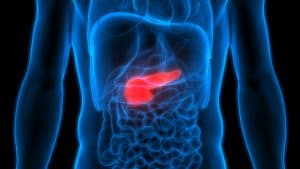
Pangea X: the largest coordinated operation against counterfeit drugs
pharmafile | September 26, 2017 | News story | Manufacturing and Production, Sales and Marketing | Europol, FDA, biotech, drugs, interpol, pharma, pharmaceutical
Operation Pangea X represents an anniversary, of sorts – as it stands as the 10th year of operations by Interpol against illicit online pharmacies. The operation saw the arrest of over 400 individuals and the seizure of more than $51 million of illegal, and potentially dangerous, medicines.
The crackdown was carried out by regulatory and medicine safety bodies across 123 countries worldwide, all of which were coordinated by INTERPOL. The effort ran from the 12th to the 19th of September and led to 1,058 investigations carried out, 3,584 websites taken offline and the suspension of more than 3,000 online adverts for illicit pharmaceuticals.
The FDA focuses its operations of the illegal sale of opioid painkillers, to coincide with its broader efforts to reduce the impact of the opioid epidemic across the country. Alone, it took action against more than 500 websites that were selling unapproved medicine and issued 13 warning letters to the operators of 401 websites.
“These rogue online pharmacies are often run by sophisticated criminal networks that knowingly and unlawfully distribute illicit drugs, including counterfeit medicines and controlled substances. Consumers go to these websites believing that they are buying safe and effective medications, but they are being deceived and put at risk by individuals who put financial gains above patient safety,” said FDA Commissioner Scott Gottlieb.
The operation to crackdown on the illegal trade in medicines online began with the first Operation Pangea in 2008. During this effort, there were only eight countries signed up but this has now exploded to become a worldwide movement, with each country focusing on a particular area of trouble within its internal market.
In Ireland, for example, more than 72,000 fake steroids products were confiscated, leading to Health Minister Simon Harris calling for gyms to work alongside authorities to combat the rise of anabolic steroid use.
In the Democratic Republic of Congo, a member of the operation for the first year, authorities managed to seize close 650 kilograms of fake anti-malaria pills – showing just how dangerous the illicit medicine trade can be, with people potentially dependent on these pills for treatment from a life-threatening condition.
Europol noted that the trend observed by all authorities each year is the growth of unauthorised and unregulated online pharmacies to peddle their products. More worrying to authorities is the trend showing that consumers are oblivious to the risks posed by such websites, as they actually fuel the illicit industry by increasingly turning to such websites when needing medicine.
Ben Hargreaves
Related Content

GSK’s meningococcal vaccine candidate accepted for FDA review
GSK has announced that the US Food and Drug Administration (FDA) has accepted for review …

FDA grants ODD to Candel Therapeutics’ pancreatic cancer treatment
Candel Therapeutics has announced that the US Food and Drug Administration (FDA) has granted Orphan …

FDA clears Oryzon’s phase 1/2 trial for lung cancer treatment
Oryzon Genomics has announced that the US Food and Drug Administration (FDA) has approved its …








